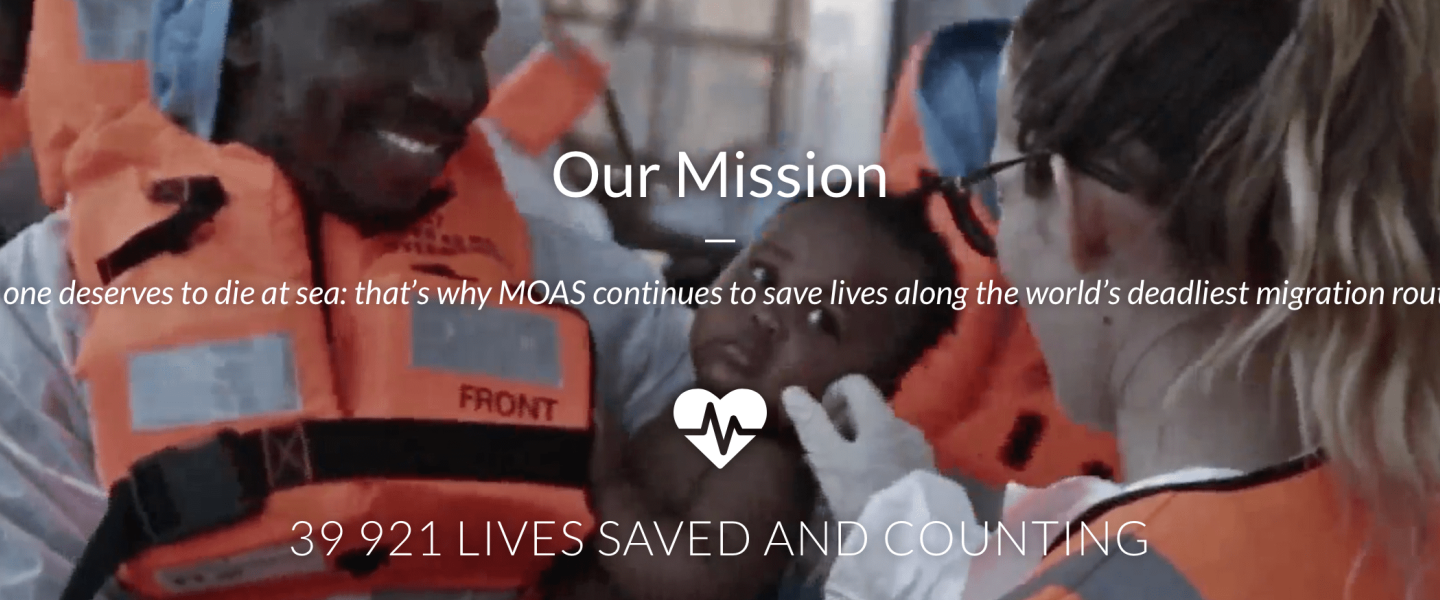In an unprecedented step, the Malta based Migrant Offshore Aid Station (MOAS) search and rescue (SAR) NGO has suspended all rescue operations in the Mediterranean citing, among other reasons, concern about the lawfulness of returns to Libya and alluding to the conditions of those returnees held in detention facilities in Libya.
MOAS was one of several NGOs who initially signed the Italian State-led, EU backed NGO Code of Conduct which placed new restrictions upon independent civil-society SAR NGOs and effectively constrained their freedom of movement and action in relation to landing those rescued at sea, at Italian ports.
Those NGOs who did not sign have been placed under significant pressure to conform through threats of impounding of their vessels by Italian authorities, and in one case, the detention of the vessel while investigations into alleged people smuggling are ongoing.
Previous allegations by Italian authorities of NGO collusion with people traffickers and criminal gangs in Libya, have been found to have been baseless.
Yesterday (4 September 2017) MOAS announced that it was shifting its operations to SE Asia. Their statement read:
“Following recent developments in the Central Mediterranean, MOAS has taken the decision to strategically redeploy its operations to South East Asia.
MOAS was founded in 2014 as the first search and rescue operation of its kind, determined to mitigate the loss of human life on deadly maritime migration routes.
On the 30th August 2014, the MOAS crew conducted its first rescue. Three years later, MOAS has rescued and assisted over 40,000 children, women and men fleeing violence, poverty and persecution, and its efforts to safeguard the most vulnerable people have been recognised most recently by the Atlantic Council.
On 1st April 2017, MOAS launched its 2017 Central Mediterranean Mission, rescuing over 2,000 people in April alone.
During this mission, the MOAS crew have faced greater challenges than ever, including the increasing overcrowding of the vessels and the deteriorating physical condition of the people rescued. Despite these challenges, during this mission the MOAS crew have rescued and assisted 7,826 people, all the while observing and monitoring the increasingly complex context in the Mediterranean. MOAS also signed the Code of Conduct proposed by the Italian government, confirming its will to cooperate.
Yet, at the moment it is unclear what is going on in Libya to the detriment of the most vulnerable people there. Their rights should be safeguarded both in line with International Law and in order to defend the principle of humanity.
MOAS does not want to become part of a mechanism where there is no guarantee of safe harbour or welcome for those being assisted and rescued at sea.
In this context, and on the basis of our humanitarian principles, the decision has been taken to suspend our search and rescue activities in the Central Mediterranean.
MOAS is nevertheless determined to continue its humanitarian activities wherever they are most needed.
On the 27th August 2017, Pope Francis called for an international response to the escalating Rohingya crisis in Myanmar.
As in 2014 when we followed Pope Francis’ appeal to assist migrants along the fatal Mediterranean route, today we are renewing our commitment in the Bay of Bengal.
Building on MOAS’ long-standing dedication to alleviating the plight of the persecuted Rohingya minority, MOAS is therefore undertaking a strategic shift of its operations to South East Asia.
From there, MOAS will deliver much-needed humanitarian assistance and aid to the Rohingya people, and will work to provide a platform for transparency, advocacy and accountability in the region where a deadly exodus is unfolding on the border between Bangladesh and Myanmar.
In the meantime, MOAS will continue to monitor global migration trends and will maintain situation awareness in the Mediterranean, ready to react to any change that would allow it to resume operations in line with its core humanitarian principles. Since the beginning of its operations, MOAS recognised that search and rescue is not the solution to the ongoing migration crisis, and will continue to advocate and lobby for the creation of safe and legal routes for those most vulnerable and in need of international protection.
As it has always done, MOAS will continue to stand for solidarity and hope for those who need them the most.”
– Ends-
